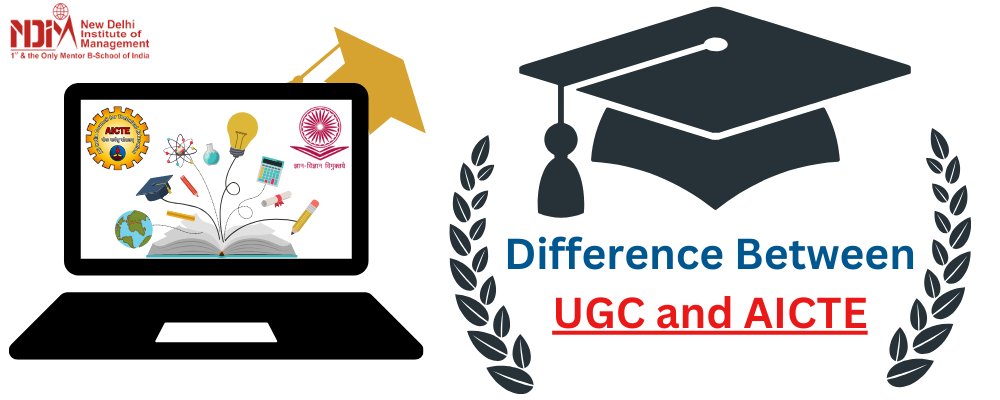Difference Between UGC and AICTE
UGC (University Grants Commission) and AICTE (All India Council for Technical Education) are two distinct regulatory bodies in India, each with its own set of responsibilities and focus areas. Here are the key differences between UGC and AICTE:
University Grants Commission (UGC):
- Establishment: UGC was established in 1956 as a statutory body of the Government of India.
- Scope: UGC is responsible for the coordination, determination, and maintenance of standards of higher education in universities and colleges in India.
- Functions:
- Framing and maintaining standards of teaching, examination, and research in universities.
- Allocating and disbursing grants to universities and colleges.
- Formulating guidelines for the establishment of new universities and colleges.
- Monitoring and evaluating the academic performance of universities.
- Promoting and funding research in universities.
All India Council for Technical Education (AICTE):
- Establishment: AICTE was established in 1945 as an advisory body and later given statutory status in 1987.
- Scope: AICTE primarily focuses on technical education and management education in India.
- Functions:
- Accreditation and approval of technical institutions and programs.
- Formulating and maintaining standards for technical education.
- Promoting research and development in technical education.
- Providing grants and financial assistance to technical institutions.
- Coordinating with other regulatory bodies for maintaining quality in technical education.
Key Differences:
Focus Area:
- UGC: Primarily focuses on maintaining standards of higher education in general, including arts, science, commerce, and other disciplines.
- AICTE: Specifically deals with technical and management education, overseeing engineering, technology, architecture, town planning, management, applied arts, and crafts.
Institutions Under Purview:
- UGC: Regulates and provides grants to universities and colleges offering various disciplines.
- AICTE: Regulates and approves technical institutions like engineering colleges, management institutes, and architecture schools.
Standards and Accreditation:
- UGC: Concerned with overall standards in higher education, including curriculum, faculty, and infrastructure.
- AICTE: Focuses on maintaining standards in technical education, ensuring that engineering and management institutions meet specified criteria.
In summary, while UGC oversees the general higher education landscape in India, AICTE specifically deals with the regulation and development of technical and management education. Both play crucial roles in maintaining and enhancing the quality of education in their respective domains.
NDIM, an AICTE-approved best PGDM college in Delhi has been instrumental in nurturing the dreams of numerous aspiring managers and propelling their ascent up the corporate ladder.
The management institute does not just focus on theoretical knowledge but also facilitates the overall growth of the students to help them take on the challenges of the corporate world. Its Corporate (Industry) Interface has been rated the best in India by AICTE-CII for 3 years in a row.
NDIM maintains a 100% placement track record, a fact validated by the Advertising Standards Council of India. To know more, visit our website at https://www.ndimdelhi.org/.


This comment has been removed by the author.
ReplyDelete